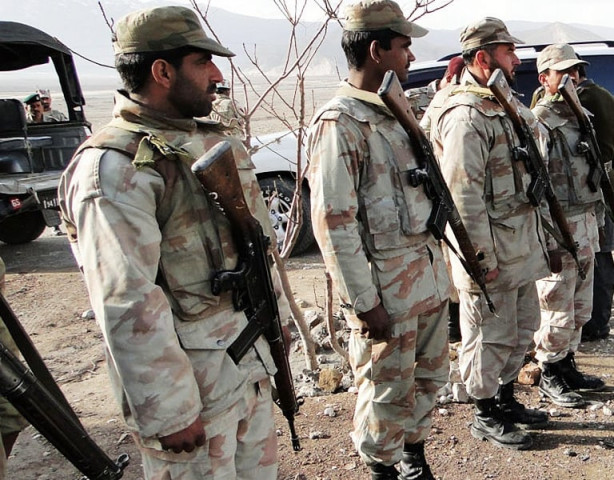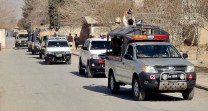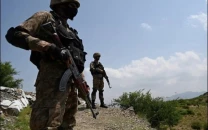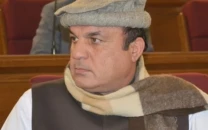Law and order situation: Admit failure in Balochistan, CJ tells chief secretary, IGFC
Says governor will be summoned once both officials submit their statements.

An irked Chief Justice Iftikhar Muhammad Chaudhry told the Inspector General of Frontier Corps (IGFC) and the Balochistan chief secretary to admit they had failed in the province, adding that the governor would be summoned once they had done so.
The CJ made the remarks while hearing a case pertaining to enforced disappearances and the law and order situation in the province at the Supreme Court’s Quetta Registry on Wednesday. He was heading a three-judge bench comprising justices Khilji Arif Hussain and Jawwad S Khwaja.
Reminding the officials that both the federal and provincial governments along with the FC had assured the court that they would resolve the missing persons case, the bench said they had failed to deliver despite the lapse of three months.
Irked by the lack of regard for court orders regarding the missing persons, the CJ asked the chief secretary and IGFC to submit either a joint or individual statement that they had failed, so that the bench could move forward in the case and summon the province’s governor.
IGFC Ubaidullah Khan Khattak told the bench that his department considered resolving the missing persons issue its first priority, adding that they were trying their utmost and had already recovered a large number of people. He claimed the FC was being maligned under a plan.
The CJ, however, remained unimpressed with the IGFC’s statement. Referring to Kaho Bugti’s case that came to light during the previous hearing, he remarked that such cases were often mishandled by the security agencies.
“If anyone is suspected of involvement in terrorist activity, they should be produced before the court,” maintained the CJ.
Reviewing Balochistan’s law and order situation, the IGFC told the bench that at least 5,000 innocent people had been killed or injured in violence in the province over the past five years. At the same time, the Balochistan home secretary informed the court that at least 24 people were murdered in target killing incidents in August alone.
Two girls from the Hazara community, present during proceedings, requested the court to take action against the sectarian violence in the province.
“We have knocked the government’s door many times, but in vain,” they maintained, adding that no one from their community was safe from the violence and many were afraid to leave their homes.
Responding to their request, CJ Chaudhry summoned Major Nadir – who is handling cases of sectarian killings in the province – for Thursday’s hearing.
Meanwhile, the bench also looked into the use of unregistered vehicles in Balochistan, asking Balochistan Advocate General Amanullah Kanrani who was issuing ‘rahdaree’ or permits for their use. Kanrani alleged the army was issuing the permits for these vehicles.
CJ Chaudhry asked authorities to arrest individuals against whose names the permits had been obtained. He also questioned the IGFC regarding his department’s apparent lack of action pertaining to the issue. The IGFC responded that the corps had been acting against the illegal vehicles until a letter from the Prime Minister’s House stripped them of anti-smuggling powers.
The Attorney General appears
Wednesday’s proceedings also witnessed a confrontation between the bench and Attorney General Irfan Qadir. In the previous day’s hearing, a visibly angry CJ Chaudhry said that Qadir would not be allowed to enter the court without prior permission due to his continued absence from case proceedings.
On Wednesday, Qadir appeared before the bench claiming he came across statements against him in newspapers. He tried to quell the notion that the federation was unconcerned about Balochistan.
Asserting that he had not been called for this hearing, CJ Chaudhry said “we cannot call you until the federal interior or defence secretary writes to us… till then we will not listen to you.”
The CJ also summoned the interior and defence secretaries for Thursday’s (today) hearing.
Published in The Express Tribune, September 6th, 2012.



















COMMENTS
Comments are moderated and generally will be posted if they are on-topic and not abusive.
For more information, please see our Comments FAQ